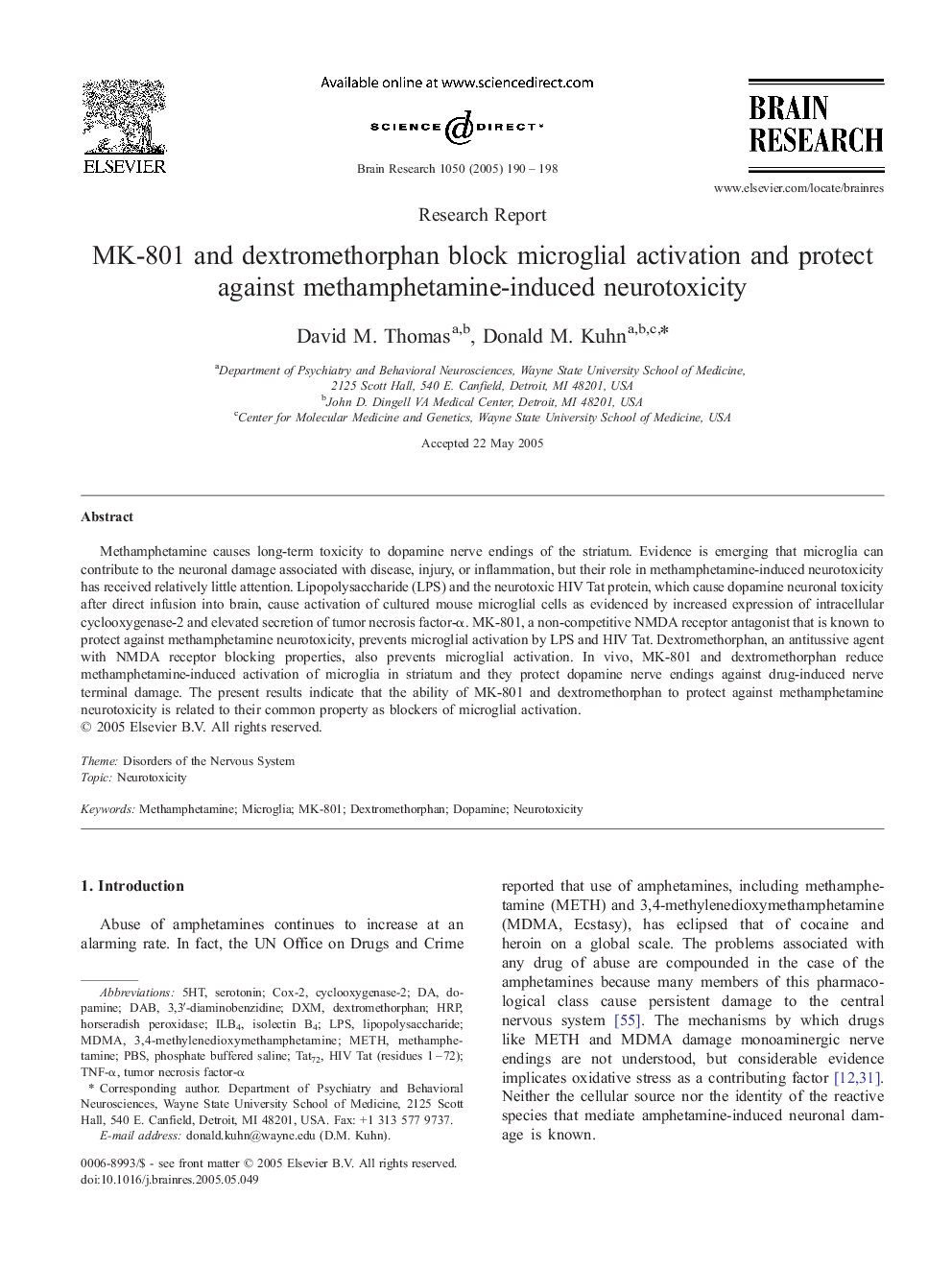| Article ID | Journal | Published Year | Pages | File Type |
|---|---|---|---|---|
| 9416142 | Brain Research | 2005 | 9 Pages |
Abstract
Methamphetamine causes long-term toxicity to dopamine nerve endings of the striatum. Evidence is emerging that microglia can contribute to the neuronal damage associated with disease, injury, or inflammation, but their role in methamphetamine-induced neurotoxicity has received relatively little attention. Lipopolysaccharide (LPS) and the neurotoxic HIV Tat protein, which cause dopamine neuronal toxicity after direct infusion into brain, cause activation of cultured mouse microglial cells as evidenced by increased expression of intracellular cyclooxygenase-2 and elevated secretion of tumor necrosis factor-α. MK-801, a non-competitive NMDA receptor antagonist that is known to protect against methamphetamine neurotoxicity, prevents microglial activation by LPS and HIV Tat. Dextromethorphan, an antitussive agent with NMDA receptor blocking properties, also prevents microglial activation. In vivo, MK-801 and dextromethorphan reduce methamphetamine-induced activation of microglia in striatum and they protect dopamine nerve endings against drug-induced nerve terminal damage. The present results indicate that the ability of MK-801 and dextromethorphan to protect against methamphetamine neurotoxicity is related to their common property as blockers of microglial activation.
Keywords
MK-801DABPBS5HTLPSDXMMDMACOX-2HRP3,3′-diaminobenzidine3,4-methylenedioxymethamphetamineDisorders of the nervous systemisolectin B4tumor necrosis factor-αDopamineDextromethorphanSerotoninNeurotoxicityCyclooxygenase-2TNF-αPhosphate buffered salinelipopolysaccharideMETHMethamphetamineMicrogliaHorseradish peroxidase
Related Topics
Life Sciences
Neuroscience
Neuroscience (General)
Authors
David M. Thomas, Donald M. Kuhn,
